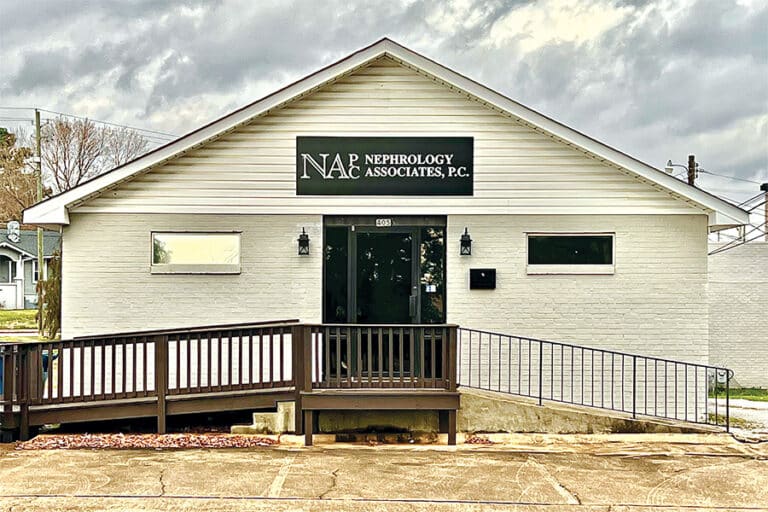Kidney disease has long suffered a lack of research funding, lagging behind heart disease, cancer and others. Consequently, there has been limited progress made in treatments for kidney disease until recently. This is especially troubling when considering the immense burden that kidney disease places on patients and their families, not to mention the huge financial burden to the healthcare system.
We at Nephrology Associates would like to highlight two areas in kidney disease where we can demonstrate recent meaningful progress. The first has to do with advancements in medication management and the second is related to care delivery.
First, the past few years have been very exciting in the world of kidney disease. We have seen a major increase in the discovery of new medications that achieve great results for patients, and as so often happens, they were kind of discovered by accident.
For example, one class of medications was designed for the treatment of diabetes but is not very strong as a diabetes therapy alone. On the other hand, scientists discovered enormous benefit to patients with kidney disease, keeping them alive and healthy longer. Another class includes some of the recently popular injectable weight loss drugs; it turns out they are very good for patients with kidney disease as well.
This excitement has compelled the American Society of Nephrology (ASN), the American Heart Association (AHA) and the American Diabetes Association (ADA) to work together for the first time ever to create guidelines for physicians caring for patients with kidney disease and for those at risk. These guidelines lay out a framework for care that, when applied appropriately, can be a game changer in the world of patients with kidney disease.
Patients with kidney disease are some of the most complex and sick people around. On average, they are burdened by more health problems, take more medications, have more doctor’s appointments and are more economically disadvantaged on average than the general population.
But since they are also the most expensive, Medicare and private insurers are motivated to improve matters for these patients in ways that will also result in lower costs to the healthcare system. The result is what some will call “value-based care.” We prefer to call it “physician-driven patient-centered care.”
The easiest way to describe the process is that we try to do everything we can think of to help patients stay alive, healthy and out of the hospital so that they can live vibrant and fruitful lives.
Through our practice’s partnership with Evergreen Nephrology, we are reaching out to offer more help to patients in the form of better healthcare education, disease prevention, care coordination, dietary education and general support in an effort to prevent kidney disease from worsening, to prevent hospitalizations, to increase planning and uptake of kidney transplants, and when dialysis is necessary, to focus on home therapies that are often better for quality of life.
Submitted by Thomas Watson, M.D., Nephrology Associates, P.C.





